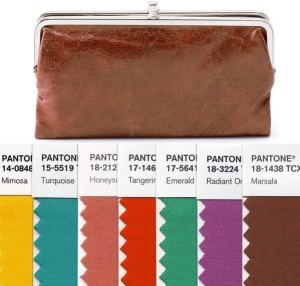Welcome to the latest installment of Word Buzz Wednesday, in which we bring you the latest words that have caught our eye. This week: a troubling policing policy; a shaky method for cyber-security; and a fishy commute.
broken windows
“‘Broken windows’ is an order-maintenance strategy that encourages cops to enforce quality-of-life laws on the grounds that, essentially, nits breed lice.”
Justin Peters, “Loose Cigarettes Today, Civil Unrest Tomorrow,” Slate, December 5, 2014
The broken windows theory suggests that “conspicuous signs of social disorder, such as graffiti and vandalism, create a climate of neglect in which serious crime can flourish,” says the Oxford English Dictionary.
The theory was put forth by social scientists James Q. Wilson and George L. Kelling in a 1982 article for The Atlantic: “One unrepaired broken window is a signal that no one cares, and so breaking more windows costs nothing.”
This theory, says Slate, “presumes that a disorderly environment where small laws are broken with impunity leads to bigger problems,” which was “the mindset that led the police to approach [Eric] Garner for allegedly selling untaxed cigarettes.” While the NYPD commissioner is a “big proponent” of this type of policing, “there’s no evidence that the policy is effective in reducing violent crime.”
die-in
“Demonstrators staged a ‘die-in’ in Brooklyn, New York, late Thursday. They lay in the middle of Atlantic Avenue. An eerie silence descended as the protesters, who had cardboard coffins, stopped chanting.”
Dana Ford, Greg Botelho and Ben Brumfield, “Protests erupt in wake of chokehold death decision,” CNN, December 4, 2014
A die-in, says the OED, is “a political demonstration in which people play dead.” The term first referred to demonstrations specifically against “nuclear and other fatal weapons,” and seems to have originated in 1970.
Die-in plays off of sit-in, “an organized protest demonstration in which participants seat themselves in an appropriate place and refuse to move,” and originally “designating a communal act of protest by African Americans against racial segregation in the United States,” according to the OED.
Recent die-ins have been demonstrations against the decision by a grand jury not to indict the police officer who put Staten Island man Eric Garner in an illegal chokehold, causing his death.
marsala
“The color specialists at Pantone, a subsidiary of color-science group X-Rite Inc., have announced that ‘marsala,’ a reddish brown, will be the color of the year in 2015.”
Meghan DeMaria, “‘Marsala’ is Pantone’s 2015 color of the year,” The Week, December 3, 2014
Marsala, in addition to being a Sicilian city, a kind of wine, and something, like chicken, cooked with that wine, is also now apparently a color. But not just any color: marsala is the “it” color of 2015.
A reddish-brown, we’re assuming the color is named for the sauce of the same name.
[Image via Jessica Yu]
patch and pray
“Nonetheless, at every level, there has been an awakening that the threats are real and growing worse, and that the prevailing ‘patch and pray’ approach to computer security simply will not do.”
Nicole Perlroth, “Hacked vs. Hackers: Game On,” The New York Times, December 2, 2014
A patch in computer science is “a piece of code added to software in order to fix a bug, especially as a temporary correction between two releases,” while to patch as a verb means to insert such a fix. The patch and pray method refers to continually implementing ad hoc fixes — rather than making design decisions based on “known properties and and well-understood analyses” — and hoping for the best.
upstreamer
“There are two types of upstreamers. The opportunists time their rides backward so they still catch the same train they would have caught had they waited. The die-hards, meanwhile, ride back and catch a later train, trading time for comfort.”
Libby Rainey, “BART’s ‘upstreamers’ chase rare commodity: an open seat,” SFGate, December 1, 2014
Upstreamers, like salmon swimming against the stream, ride the BART in the opposite direction of rush hour traffic, as well as their destination. Their goal, however, isn’t to spawn and die but to snag an empty seat before the cars fill up. BART calls this backriding.

